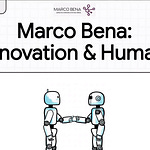Five years ago, our lives were turned upside down by an unprecedented event: the lockdown related to the pandemic.
The streets emptied, businesses closed their doors, and the entire world found itself confined within the walls of its home.
But what remains of this transformative experience?
What changes have taken root in our societies and our professional lives, and which, on the contrary, have been forgotten or erased?
Social Effects: A Contrasting Legacy The lockdown acted as a merciless mirror, reflecting pre-existing social inequalities.
On one side, it strengthened the sense of community and solidarity, with volunteer initiatives and mutual aid flourishing all over the world.
On the other side, it exacerbated social divisions, with the most vulnerable populations bearing the heaviest consequences in terms of health, employment, and education.
What endures:
An awareness of fragility: We have learned not to take normality for granted and to value human connections.
Increased attention to mental health: The lockdown highlighted the importance of psychological well-being, leading to heightened awareness and demands for help.
New forms of socialization: Video calls and online events remain viable alternatives for maintaining contact from a distance.
What has been forgotten (or almost):
Emotional intensity: The fear, uncertainty, and loneliness experienced during the lockdown tend to fade over time.
Restrictions: The freedom of movement and socialization has been gradually regained; the imposed limitations are now relegated to the past.
Professional Effects: A New Work Paradigm The world of work is one of the sectors that has been most profoundly transformed by the lockdown.
Remote work, once marginal, has become the norm for many, offering new opportunities but also unprecedented challenges.
What endures:
Remote work: Many companies have adopted hybrid models combining in-office presence and remote work.
Digitalization: The lockdown accelerated the digitization of professional processes. We have noticed an increase in investments in technology and digital skills.
Flexibility: Workers increasingly appreciate the flexibility offered by remote work, facilitating the balance between personal and professional life.
What has been forgotten (or almost):
Office socialization: The lack of physical interaction with colleagues can lead to feelings of isolation and a loss of belonging.
The boundaries between personal and professional life: The overlap between work and personal life can generate stress and a risk of burnout.
Challenges related to managing remote teams: Remote leadership requires new skills and communication strategies.
The Future: A Balance Between Memory and Projection
The lockdown was a significant event that created a before and after in our lives.
Five years later, we must reflect on the legacy of this experience to remember the lessons learned and build a more resilient and sustainable future.
We need to find a balance between the memory of the past and the projection toward the future.
This is possible by valuing positive changes while mitigating negative effects.
Only in this way can we transform a crisis into an opportunity for growth and progress for all.
What do you think?
What effects of the lockdown have marked you the most?
Share your experience in the comments!













